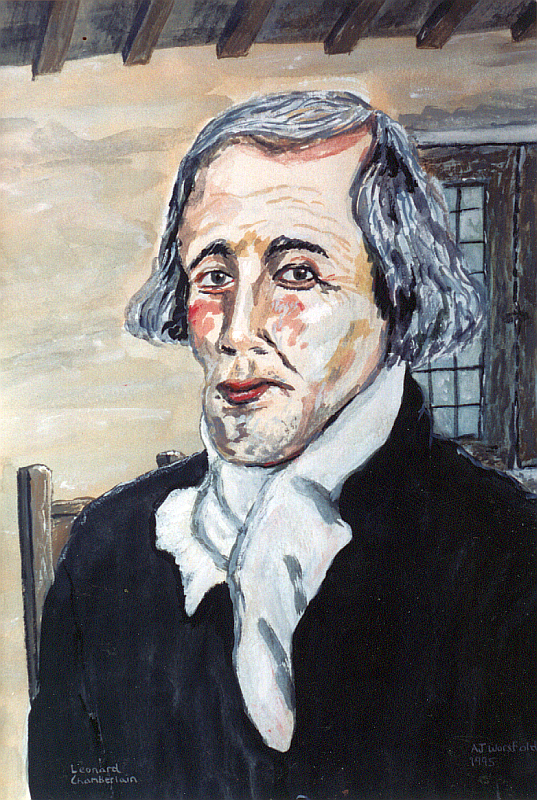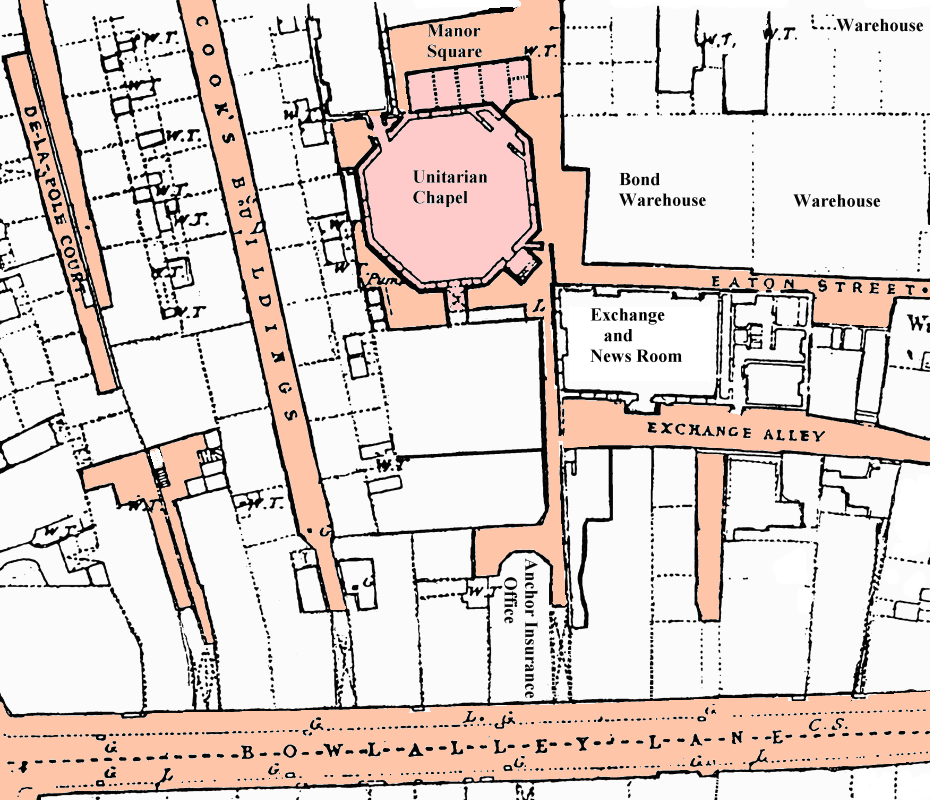Protestant Ethic and Spirit of Capitalism:
Case Study
Here is a painting of Leonard Chamberlain who lived in Hull in the mid to late 1600s:
Below is the church [location and the map of the one] that succeeded his in 1806; his chapel from 1693 will have been basic, consisting inside of a very simple interior with a table and no ornamentation (no candles, no pictures). This one in the Old Town of Hull will have been simple inside too, but has an octagonal shape.
|
Working in small groups, try to understand the lifestyle of a Calvinist Puritan such as Leonard Chamberlain. Pick a day of the week and imaginatively describe his day. His views are very traditional regarding the family, he is strict regarding simplicity of lifestyle, he has plenty of money for charitable purposes, and he believes in predestination (that God has already decided who is to go to everlasting life). In working out his day, include these beliefs and stances.
|
|
Now to define some terms: discussing with a partner, try to write down very brief definitions for the following words in alphabetical order:
|
- Calvinist
- Catholic
- Christian
- Damnation
- Hindu
- Marxist
- Muslim
- Predestination
- Protestant
- Salvation
- Sin
- Social action theory
|
Now a further and complex question: Leonard Chamberlain had Calvinist beliefs before widespread industrialisation. He was already wealthy from the wool trade working in the later 1600s. He certainly lived simply and in a Calvinist and Puritan manner, but were not Calvinist beliefs already irrelevant by the time of industrialisation, from 1760? Can we trust Weber and history?
|
Nevertheless, the importance of The Protestant Ethic and Spirit of Capitalism is the proposition that beliefs are important in their own right and can affect the economy, and not simply the Marxist view that beliefs are for economic and class purposes.
The evidence of Leonard Chamberlain is ambiguous. He was already wealthy. He did behave like Weber said, but it was too early to industrialise. Those who did industrialise later may have inherited some aspects of Calvinist spirituality, but they did not share the need to find a concrete sign of their salvation.
Arguments against Weber, then. Is Weber saying that Calvinism caused capitalism? Or is he saying that the beliefs of Calvinism are only a possible factor in capitalist growth?
Samuelson (against Weber) states that if Weber is true, Calvinism must lead to a capitalist outcome, and finds little evidence of this in Switzerland where Calvinism first took root. Samuelson states that capitalism needs finance first and foremost. Britain had money from international trade including slavery, advances in agricultural technology releasing labour, and a financial market system to cope.
Back in favour of Weber. Marshall states that Weber is well aware of many factors influencing capitalism. It is not possible to take an isolated case like Switzerland, where other factors may mitigate against capitalism growing.
The issue is this - how is it that a traditional society that stays the same for so long suddenly changes into a new society? What factors allow this change? Weber thinks a change in belief can help bring about a change in society. It is a possibility.
Adrian Worsfold


